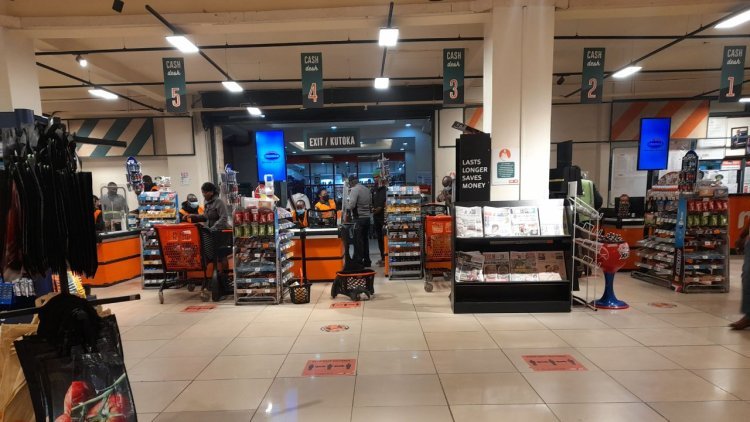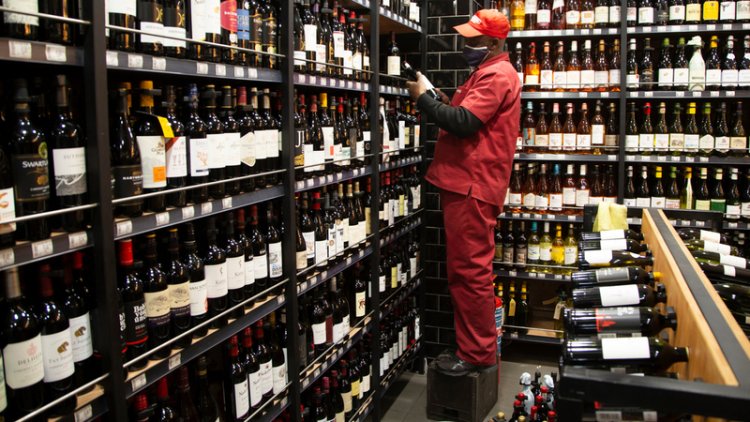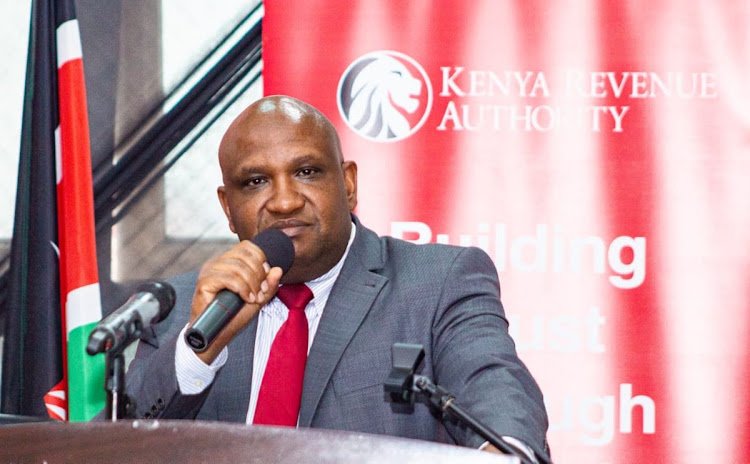KRA To Increase Taxes On These Popular Products From October
The deadline for submission of views on the proposed 6.3% inflation adjustment is on Friday, September 16. The new adjustment is likely to take effect on Saturday, October 1.

The Kenya Revenue Authority (KRA) announced the implementation of the annual inflation adjustment on the excise tax, a move which is likely to affect some products that are popular among Kenyans.
The deadline for submission of views on the proposed 6.3% inflation adjustment is on Friday, September 16. The new adjustment is likely to take effect on Saturday, October 1.
Some of the products likely to be affected by the adjustment include cigarettes, wine, toothpaste, motorcycles, imported sugar, imported SIM cards, imported white chocolate, beverages, and cigars.

A wines and spirits shop in Nairobi. /FILE
Others include packaged water, juice fruit, nicotine products and other products manufactured using tobacco, alcoholic and non-alcoholic beverages, petroleum products, cosmetics, rawhide and skins among others.
"The specific rates will be adjusted using the average inflation rate for the financial year 2021/2022 of six decimal three per centum (6.3 per cent), as determined by the Kenya National Bureau of Statistics, and the adjusted specific rates will be effective from October 1, 2022," the taxman's statement read in part dated Thursday, September 1.
The proposed 6.3% inflation adjustment was formulated to protect the government as Kenya’s currency continues to lose value as the price of goods increases.
The application of the annual inflation tax is in line with the law that demands excise duty be revised upwards in tandem with the cost of living measure. This is a move that will force manufacturers and other traders to pass on the additional costs to consumers.
This will come days after the price of Super Petrol went up by Ksh20 to Ksh179.30 per litre, Diesel increased by Ksh25 to Ksh165 while Kerosene increased by Ksh20 to Ksh147.94 in Nairobi. Fuel inflation was the primary cause of overall consumer price increases in Kenya over the past year due to higher pump prices.
During his speech on Tuesday, September 13 after he was sworn in as Kenya's fifth Head of State, President William Ruto planned to end the fuel subsidy, arguing that taxpayers have spent a total of Ksh144 billion, a whooping Ksh 60 billion in the last 4 months.
"If the subsidy continues to the end of the financial year, it will cost the taxpayer Ksh280 billion, equivalent to the entire national government development budget," he stated.
In his speech, however, he did not mention an intervention plan to save Kenyans from the high cost of living which would potentially be made worse in the event fuel prices went up after the removal of the subsidy.
Increased prices of basic food items such as maize flour, wheat flour, and cooking oil have taken away the spending power of Kenyans and some are even afraid of purchasing extra items during checkout because of budget constraints.
KRA, led by Commissioner General Githii Mburu, had announced on Thursday, July 7 that the authority had surpassed the Ksh2 trillion mark in terms of revenue collection- the highest since it was founded. Ksh2.031 trillion was collected for the 2021/2022 Financial Year concluded on Thursday, June 30, compared to Ksh1.669 trillion collected last year.

KRA Commissioner General Githii Mburu. /THE STAR

 admin
admin 




